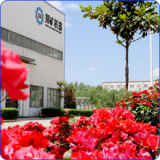High quality grinding mills for sale
Negotiable /Set
Min.Order:1 Set
Quick Details View All >
Henan Zhengzhou Mining Machinery CO.Ltd
Product Details
A Ball Mill grinds material by rotating a cylinder with steel grinding balls, causing the balls to fall back into the cylinder and onto the material to be ground. The rotation is usually between 4 to 20 revolutions per minute, depending upon the diameter of the mill. The larger the diameter, the slower the rotation. If the peripheral speed of the mill is too great, it begins to act like a centrifuge and the balls do not fall back but stay on the perimeter of the mill.
The point where the mill becomes a centrifuge is called the "Critical Speed", and ball mills usually operate at 65% to 75% of the critical speed.
Application:
Ball mill is the key equipment for grinding after the crushing process, and it is widely used in the manufacture industries, such as cement, silicate, new building material, refractory material, fertilizer, ferrous metal, nonferrous metal and glass ceramics.
It also can be used for the dry and wet grinding for all kinds of ores and other grind-able materials.
Types:
Mill could be sorted as follows:
As per the grinding media: ball mill, rod mill and AG Mill (without grinding media).
As per material discharging mode: wet grid mill, dry grid mill & overflow mill.
As per driving mode: side & central driving. The former is more popular now.
As per driving configuration:
a. Asynchronous motor driving: Asynchronous motor + Reducer + Pinion +Girth gear
b. Synchronous motor driving: Synchronous motor+ Air clutch+ Pinion +Girth gear
c. Asynchronous motor + reducer + diaphragm coupling
Structure of Ball mill:
The machine is composed of feeding part, discharging part, turning part and driving part (reducer, small driving gear, electric motor, and electric control).
The quill shaft adopts cast steel part and the liner is detachable. The turning gearwheel adopts casting hobbing process and the drum is equipped with wear-resistant liner, which has good wear-resistance.
Contact Supplier

You May Like


New Products
Popular Searches
Recommended Products
Find Similar Products By Category